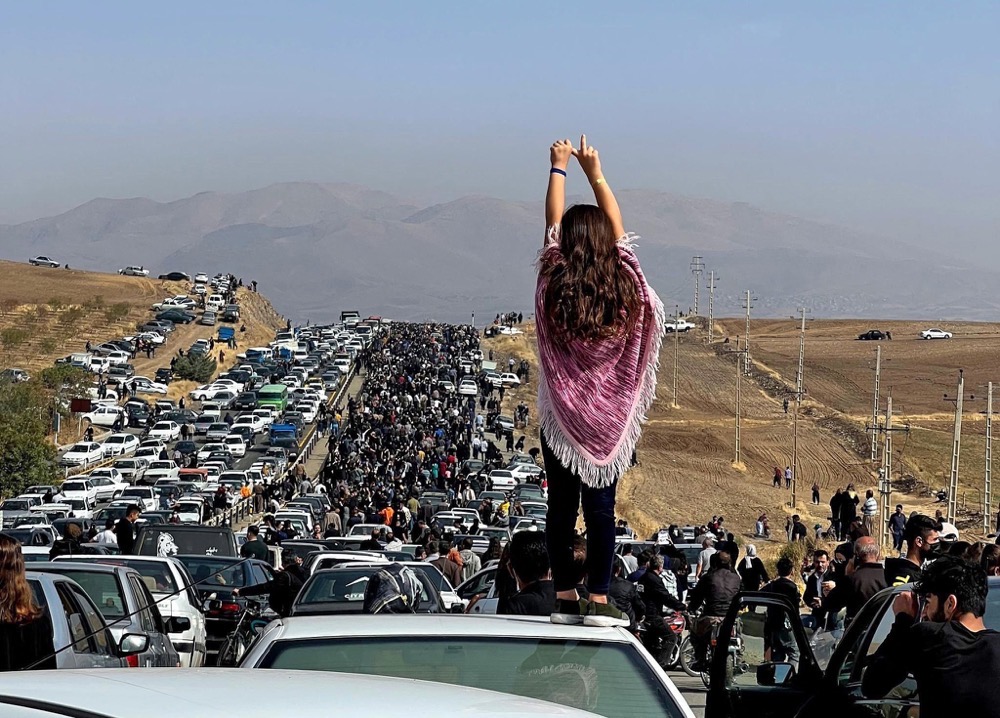
On June 13, 2025, the PJAK, a Kurdish-oriented militant terror group operating within Iran, issued a public statement declaring its support for Israel and calling for an uprising against the Iranian government. The announcement marks one of the most explicit calls for rebellion tied to an external power since the early years of the Islamic Republic.
While the group holds limited influence nationally, the timing and tone of the message sparked renewed debate among analysts and regional observers. Many view the statement as a fresh indication that Israel may be seeking, directly or indirectly, to influence or even engineer the collapse of the Tehran regime. Discussions now focus on the potential mechanisms available to Israel—whether military, political, or social—that could be used to apply pressure or destabilize the Iranian state.
This move adds a new layer to Israel's multi-pronged strategy toward Iran, which has historically included overt support for the return of the Shah’s lineage, occasional nods to ethnic dissent, and efforts to empower secular or liberal voices.
Of these, a royalist revival and the restoration of a secular monarchy has received the most public support from Israeli officials and public diplomacy, though remains far from feasible in current conditions.

Iran’s secular middle class is a persistent source of dissatisfaction with the Islamic Republic, particularly in urban areas like Tehran, Shiraz, and Isfahan. However, this segment of society faces severe structural constraints that prevent organized political action. Surveillance, arrests, and repression have dismantled most grassroots organizing.
Material hardship is another limiting factor. Years of economic mismanagement and international sanctions have left the middle class financially unstable. Even those who are politically discontent are forced to prioritize day-to-day survival over long-term activism. This weakens their potential to act as agents of change.
While sporadic protests over economic issues and civil rights have emerged, they tend to be short-lived and fragmented. The lack of leadership, clear political vision, and access to independent media make it difficult for secular voices to coalesce into a revolutionary force. As of now, they remain marginalized and reactive rather than transformative.
The blows suffered by the regime serve primarily to create temporary breathing room for personal freedoms, not to enable a broader political transformation for this segment of the society.
According to Dr. Agah Hazir, an expert on Iranian politics, the regime still retains a support base—even if not a majority—and when combined with modern technology imported from China, this allows it to sustain its power and suppress dissent effectively.
Some analysts argue that broader cooperation among Iran’s non-Persian communities could shift this dynamic. “Pahlavi currently enjoys significant backing from Western media and the Persian diaspora, but he lacks genuine grassroots support within Iran,” said M. Arizanti, a MENA analyst and human rights advocate.
“The real key to democratic transformation lies with Iran’s so-called ‘minorities’—who, if united, actually form the majority. If Pahlavi can move beyond the outdated Persian supremacist narrative and build an inclusive alliance with these communities, it could form a powerful coalition capable of shaking the regime’s foundations. Such a coalition would not only challenge Tehran’s authoritarian hold but would also carry immediate legitimacy in the eyes of the international community.”
Iran’s internal ethnic structure may represent one of the few exploitable fault lines for external actors seeking to destabilize the regime. Though Persians dominate the political and cultural elite, minorities such as Azeris, Kurds, Arabs, and Baloch often experience systematic exclusion. This has created reservoirs of local resentment.
Among these, the Kurdish population in western Iran stands out due to its history of organized resistance and cross-border solidarity with Kurds in Iraq and Syria. Kurdish nationalism, with its relatively secular character, may also appeal to broader opposition circles inside Iran, especially among younger generations in peripheral provinces.
However, the demographic and geographic limitations of Iran's Kurdish regions significantly constrain their revolutionary potential. They lack the critical mass to control national institutions or threaten the regime’s core. Moreover, deep suspicion between Kurdish groups and other Iranian minorities complicates the emergence of a united front.
The Baloch population, predominantly Sunni and based in the southeast, faces even starker repression. While unrest in these regions can destabilize the periphery and force the regime to divert resources, these movements are unlikely to evolve into a coordinated campaign for regime change without external organization and support.
Iran’s second-largest ethnic group, the Azeri Turks, remain predominantly Shiite but are not entirely satisfied with the regime. However, attempts by external powers to mobilize them as a political tool remain a strained and unlikely option.
Israel, despite its advanced military, does not have the capacity to launch and sustain a direct intervention to overthrow the regime in an attempt of invasion.
Former Israeli Prime Minister Ehud Barak, speaking live on Friday, acknowledged the limitations of unilateral action, stating, “Israel alone cannot delay the nuclear program of Iran by a significant time period, but it can’t just sit idle.”
“Probably together with Americans we can do more,” Barak added, “however, neither Trump nor any of his potential predecessors can decide to go to a full-scale war with Iran.”
But in Europe and the US, political leaders have started repeating the same, single phrase: Iran cannot acquire nuclear weapons.
Ultimately, any attempt to topple Iran’s regime would require exploiting long-term vulnerabilities—ethnic tension, economic mismanagement, and generational disillusionment—rather than expecting rapid collapse through military or ideological confrontation. Without a viable domestic partner capable of national leadership, regime change remains an elusive goal.